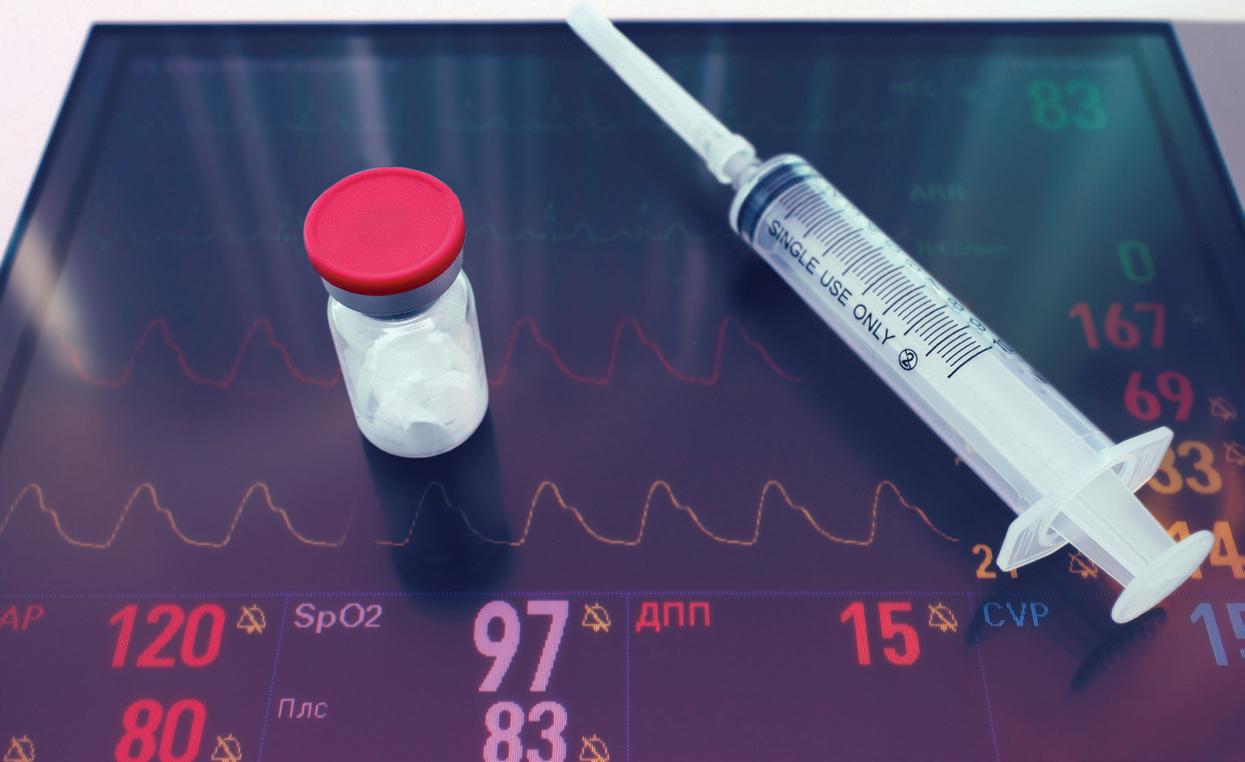News
ORGAN DONATION
All adults to be automatically enrolled as organ donors
Under a new law due to come into force in May, all adults in England will be automatically enrolled as organ donors unless they choose to opt-out. It is estimated that the opt-out method, known as Max and Keira’s law, will contribute to an additional 700 organ transplants each year by 2023 and cut down the list of 5,200 people waiting for life-changing surgery. MPs are set to approve the system
as part of a bid to boost the number of transplants on the NHS. Patients who have previously declared that they do not want to donate some or all of their organs will not have to re-record their decision. If Parliamentary approval is given, 20 May will mark the point at which all adults in England will be considered to have agreed to donate their own organs when they die – unless they explicitly state otherwise or
are in an excluded group. However, relatives will still be asked for their opinion which can lead to donations being blocked if they object regardless of the wishes of the deceased. The Department of Health and Social Care has also stated that children under 18 will be excluded from the scheme, along with people who have lived in England for less than a year or have ‘lacked capacity for a significant time’. Health Secretary Matt Hancock said: “Too many people lose their lives waiting for an organ, and I’ve been determined to do what I can to boost organ donation rates.This is an important step forward in making organ donation easier and more available to those who need it and could help save hundreds of lives every year.” The law change has been welcomed by charities including the British Heart Foundation and Kidney Care UK. READ MORE https://tinyurl.com/wmp7nu3
CORONAVIRUS
DIABETES
Pilots of home testing for coronavirus started
Two million people at risk of type 2 diabetes
The NHS has started pilots of home testing for coronavirus where NHS staff, including nurses and paramedics, will visit people in their own homes rather than them having to travel. On 23 February it was publicly confirmed that four patients transferred from the Diamond Princess cruise ship in Japan had tested positive for coronavirus. They have now been transferred to three specialist NHS infection centres. Approximately 77,000 people in China, where the virus emerged last year, have been infected and nearly 2,600 have died. No vaccine is available so far to prevent the new coronavirus and fears are growing that the coronavirus outbreak could become a pandemic as new cases are reported globally. More than 1,200 cases have been confirmed in 26 other countries, prompting more than 20 deaths. Professor Keith Willett, NHS strategic incident director for coronavirus said: “We have started to pilot home testing for
coronavirus in London, which will be carried out by NHS staff, like nurses or paramedics, allowing people to stay home rather than having to travel, which is safer for you and your family and limits the spread of infection. “Anyone who is concerned they have signs and symptoms, should continue to use NHS 111 as their first point of contact – they will tell you what you exactly what you need to do and where necessary, the right place to be tested. People should also play their part by following public health advice – wash your hands, cover your mouth and nose with a tissue or sleeve when you cough or sneeze, and put used tissues in the bin immediately. I would also like to thank the NHS staff who are back in Arrowe Park ready to provide excellent care and support to the British nationals who are returning from the Diamond Princess cruise ship in Japan.” READ MORE https://tinyurl.com/s3r5g2t
New NHS figures show that approximately two million people in England are at risk of developing type 2 diabetes, the highest on record. Latest statistics show there are 1,969,610 people registered with a GP who have non-diabetic hyperglycaemia, a condition which puts people at high risk of type 2, which is the highest on record. It is also likely that the problem will become even greater as the growing obesity crisis is exposing millions more to the condition. Around nine out of 10 people with diabetes have type 2 and there were over a million obesity diagnoses in hospital admissions last year, 884,000 the year before. NHS action to combat the problem includes the Diabetes Prevention Programme which identifies people at high risk of diabetes and supports them in living a healthier lifestyle. It has had nearly a million referrals and seen patients who have so far finished it lose the combined weight of 43 ambulances. The programme, which lasts between nine and 12 months, is designed to stop or delay the onset of illness through advice and support on healthier eating and physical exercise. Radical low calorie diets, that have been shown to stamp out recently diagnosed type 2 diabetes, will be rolled out by the NHS to 5,000 people from April. READ MORE https://tinyurl.com/u5kr4tr
Issue 20.1 | HEALTH BUSINESS MAGAZINE
7










